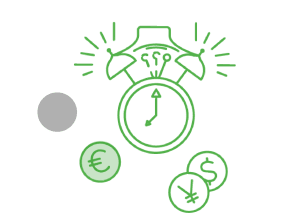This article will answer the following questions:
- How the regulations implementing the EU DAC7 directive define digital platform operators?
- Which platform operators are excluded from the reporting obligation?
- How the reporting obligation under DAC7 will affect platform operators from outside the EU?
Pursuant to EU Council Directive 2021/514 of 22 March 2021 amending Directive 2011/16/EU on administrative cooperation in the field of taxation (DAC7), digital platform operators are obliged to report a significant amount of information to tax authorities. Which entities operating in Poland should prepare for new reporting obligations and how?
Who is obliged to fulfill the new reporting obligations?
Reporting obligations are imposed not only on Polish platform operators and those who are tax residents of EU Member States. Operators who do not have a place of management or a permanent establishment in any EU Member State are also covered by the directive. What entities are considered platform operators under the DAC7 directive and the Polish act?
Who is the Platform Operator?
The EU directive DAC7 indicates that the operator of a digital platform is any entity that acts as an intermediary between the seller and users on a given platform and enables the seller to perform the so-called "relevant activities" for consideration.
It should be noted that - according to this interpretation - an entity that (using its own digital platform) makes available to users not only its own goods and/or services, but also the goods and/or services of trading partners may also be considered a digital platform operator.
On the other hand, the act implementing the DAC7 directive understands a platform operator as an entity that concludes contracts with sellers in order to make the platform or parts of it available to them.
How do the regulations implementing DAC7 understand the concept of platform?
The EU DAC7 directive (and the Polish act introducing national regulations) understands as a platform any software - including a website or part thereof, and any applications (including mobile applications) - available to users and enabling sellers to connect with other users in order to perform 'appropriate action', directly or indirectly, on behalf of such users.
However, the concept of platform also includes all arrangements made between the operator and the user regarding the collection and payment of consideration for the relevant activity.
The DAC7 directive also provides certain exceptions to the recognition of software as a platform. The platform will not include software that - without any further interference in the performance of the relevant activity - only enables:
- payment processing in relation to the relevant activity;
- users to post offers or advertise the relevant activity;
- redirecting or transferring users to the platform.
Learn more about tax advisory services
Is each Platform operator obliged to fulfill reporting obligations?
Not every platform operator will be obliged to provide information about sellers. The DAC7 directive contains the definition of an excluded platform operator who is not obliged to provide information about sellers to the tax authorities.
An excluded platform operator is an operator that demonstrates annually (to the satisfaction of the competent authority of an EU Member State) that, consistent with the overall business model of the platform, it does not include reportable sellers.
Under the Polish act, the excluded platform operator will be obliged to provide the Head of the National Tax Administration in the information provided to him about sellers with a statement that due to the adopted business model, there are no reportable sellers operating on the platform. The deadline for submitting this information is the end of the month following the end of the reporting period.
What obligations does the EU DAC7 directive impose on non-EU platform operators?
As previously indicated, the reporting obligation under the DAC7 directive also covers platform operators from outside the European Union.
Such a platform operator will be an entity that enables the performance of an appropriate activity related to the provision (rental) of real estate located in the territory of an EU Member State or an entity that enables the performance of an appropriate activity by sellers subject to reporting and is not a reporting platform operator from the EU or a qualified platform operator from outside EU.
If the platform operator meets the conditions allowing the tax authorities to recognize it as a reporting non-EU platform operator both in Poland and in another EU Member State, the operator may choose Poland as the country in which it will fulfill reporting obligations. In such a case, the entity must complete a one-time registration in Poland using a registration form submitted to the National Tax Administration.
If a reporting platform operator from outside the EU registers for this purpose in an EU Member State other than Poland, it must electronically notify the Head of the National Tax Administration of its choice - also using the registration form.
The entity must fulfill these obligations no later than on the date of commencement of operations as a platform operator.
A non-EU reporting platform operator is, in principle, exempt from providing information on sellers for eligible relevant automatic exchange activities under an agreement providing for the automatic exchange of information equivalent to seller information, in the case of reportable sellers who are Polish residents and provide properties located in territory of Poland.




